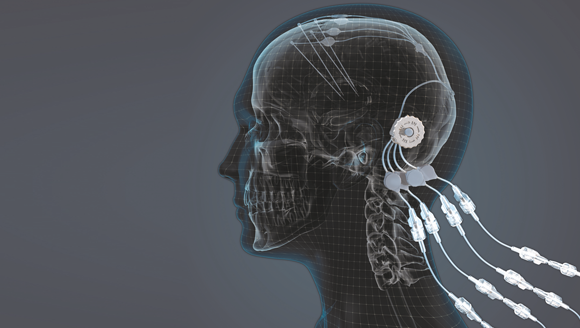Renishaw’s neuroinfuse drug delivery system wins TCT Healthcare Award
October 20, 2019

Renishaw, Wotton-under-Edge, Gloucestershire, UK, received the TCT Healthcare Award for its neuroinfuse™ drug delivery system during the TCT Show in Birmingham, UK, on September 25, 2019. The device features an additively manufactured titanium port that enables pharmaceuticals to bypass the blood-brain barrier, so that drugs used to treat neurological disorders can be delivered directly into the brain.
According to Renishaw, there are currently no approved methods for the delivery of medications for the treatment of neurological disorders directly into the brain. It believes that neuroinfuse has the potential to help develop therapeutic regimes for a range of neurological conditions, such as Parkinson’s, and brain tumours.
Designed and manufactured by Renishaw on behalf of the North Bristol NHS Trust, neuroinfuse’s titanium transcutaneous port is anchored into the bone behind the patient’s ear.
The port enables four micro-catheters, implanted into a chosen target area in the brain, to deliver medications via drug-filled infusion lines, connected via the MRI-compatible titanium application set. Once the port has been implanted into a patient, delivery of pharmaceuticals can be achieved over a long period without the need for further surgery.
The device is currently being used to treat children, typically between the ages of five and ten, suffering with diffuse intrinsic pontine glioma (DIPG), an aggressive form of brain tumour. It is also being used in a Phase I – II clinical trial with Herantis Pharma Plc to help develop therapeutic regimes for Parkinson’s disease.
“Now is an exciting time for Additive Manufacturing in the healthcare sector,” commented Dr Max Woolley, Technical Fellow and Head of Drug Delivery Device Research and Development at Renishaw. “The technology has enabled the industry to produce new, innovative devices in a streamlined and efficient way. AM healthcare technology has great potential both for clinicians and patients.”
















